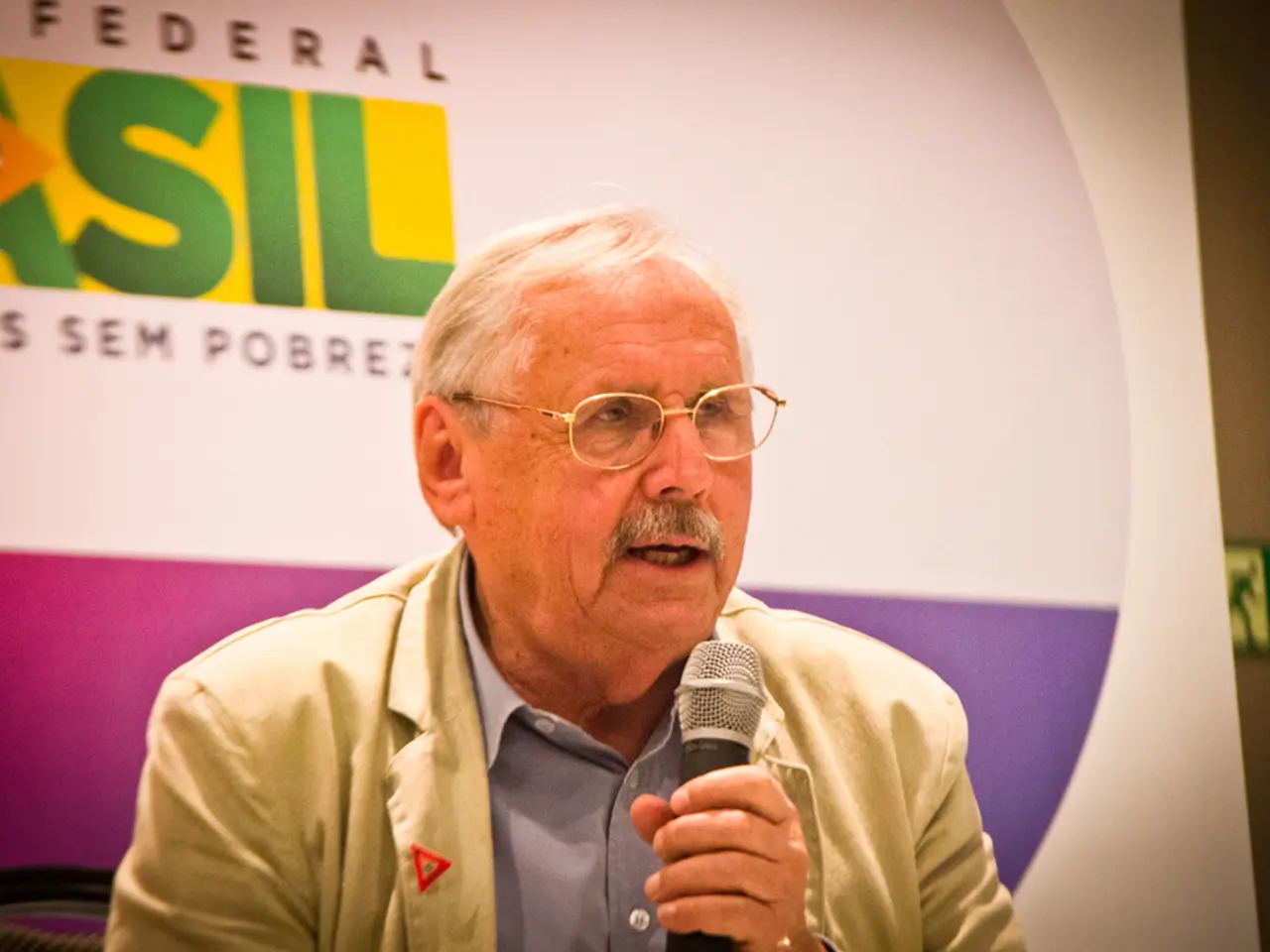D.C. Police Control Seized by Trump as His New Contrived Emergency Power Seizure
In a move that has sparked controversy and debate, President Donald Trump declared a "crime emergency" in Washington D.C. on Monday, temporarily taking control of the city's police department. This marks the first time a president has invoked the D.C. Home Rule Act of 1973 to take over the city's police.
The president announced the deployment of National Guard troops and hundreds of federal law enforcement officers, including FBI agents, to the nation's capital. The decision comes amidst rising concerns about public safety, with Trump referring to the current situation in Washington D.C. as an emergency and a tragic emergency.
However, D.C. Attorney General Brian Schwalb has stated that the takeover of city police by President Trump is unprecedented, unnecessary, and unlawful. Schwalb also mentioned that violent crime in Washington D.C. reached historic 30-year lows last year and is down another 26% this year, suggesting that the city's crime situation may not warrant such drastic measures.
Throughout his presidency, Trump has made extensive use of emergency powers. Examples include declaring national emergencies related to actions by the Government of Brazil, threats from criminal organizations such as Tren de Aragua, and a national energy emergency. These declarations have granted him authority to manage energy resources, impose sanctions, regulate commerce, and control communications during crises.
However, these declarations and associated executive actions have sparked debate about the proper scope, legality, and political implications of such power. Critics, including Democrats and some libertarian-leaning Republicans, have raised concerns about executive overreach, separation of powers, and the potential targeting of certain communities and states perceived as resisting federal policies.
Recent statistics suggest that violent crime in Washington D.C. has been getting better, not worse. Despite this, the president's decision to declare a "crime emergency" and take control of the city's police has raised questions about the legitimacy and necessity of his actions.
In the past, Congress has intervened in city affairs due to D.C.'s constitutional status as a federal enclave, preventing the city from regulating marijuana businesses and nixing a billion dollars from the city's budget. The current situation in Washington D.C. serves as a reminder of the complex relationship between the federal government and the city, and the potential for political machinations to influence local affairs.
[1] "Presidential Emergency Powers" (2021). Congressional Research Service. Retrieved from https://crsreports.congress.gov/product/pdf/R/R45118
[2] "Trump declares emergency in Washington D.C., deploys National Guard and federal law enforcement" (2021). CNN. Retrieved from https://www.cnn.com/2021/04/05/politics/trump-dc-emergency-declaration/index.html
[3] "Trump's Emergency Powers: A Timeline" (2021). The New York Times. Retrieved from https://www.nytimes.com/interactive/2019/02/15/us/trump-emergency-powers-timeline.html
[4] "Trump's Emergency Powers: What You Need to Know" (2021). The Washington Post. Retrieved from https://www.washingtonpost.com/politics/2019/02/15/trumps-emergency-powers-what-you-need-know/
- The debate over presidential emergency powers, recently highlighted by President Trump's declaration of a "crime emergency" in Washington D.C., has been a topic of discussion in policy-and-legislation and general-news circles, with critics raising concerns about executive overreach and potential targeting of certain communities.
- As the President takes control of the city's police during this "crime emergency," the situation in Washington D.C. is being observed not only through the lens of politics, but also war-and-conflicts, crime-and-justice, and business, given the deployment of National Guard troops and federal law enforcement officers, potentially impacting public safety, commerce, and communications.
- The complex relationship between the federal government and Washington D.C., historically marked by Congressional interventions due to the city's constitutional status as a federal enclave, sheds light on the broader implications of presidential emergency powers in the context of business, politics, and general-news, as well as policy-and-legislation and war-and-conflicts.







